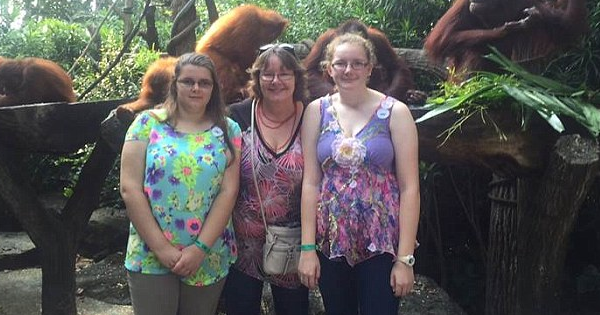Advertisement
These teen sisters are trying to live a normal life like anyone else.
They go to school, they love music and playing games on their computers.
However, their lives will never be normal. Four years ago, they were diagnosed with type one Usher syndrome.
Both girls were born profoundly deaf. India, now 16, was diagnosed when she was 10 months old. They told her mother, Vicki Cox, that there was about a 25 percent chance her younger daughter, Samira, would be deaf too. India, now 14, was born deaf shortly after.

They both live with hearing aids, which means they can hear somethings, but still struggle with noise.
They can both verbally communicate, as well as use sign language. But that wasn’t the end of these girls’ problems.
Vicki Cox recalls learning that something else was wrong. “We were on holidays in the Daintree area of North Queensland in 2011 where there is no streetlighting, and at night Samira was struggling to see anything and needed help to get around.”
They both wear glasses, so Vicki decided to get both of their eyes checked.
India’s retinas were fin, but Samira’s showed signs of retinitis pigmentosa, which, combined with hearing loss, are early signs of Usher syndrome.
One of the most marked signs of loss has been in their peripheral vision. They often bump into others, and have trouble finding things when they drop them.
Usher syndrome affects the girls’ balance, as well as their hearing and sight. India fractured her ankle when she lost her balance on the stairs.
And though they excel in their studies, social activities are difficult. “It is harder to make friends because some kids just don’t take time to understand the difficulties we have with listening and talking,” say the sisters.

Vicki hopes to help her daughters travel the world while they still have their sight. In the meantime, they’re part of the Usher Syndrome Coalition, which helps support the family.




